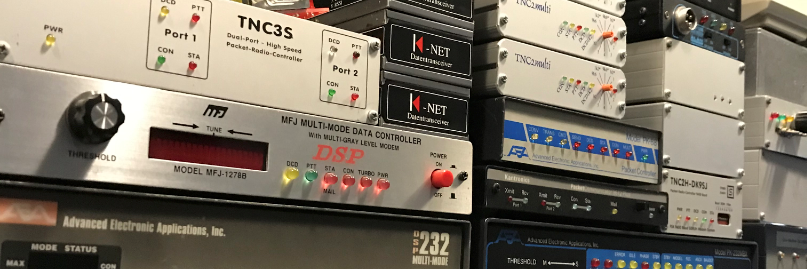Today I started setting up a new system. I still have an old system on the shelf
that I think is suitable for the purpose of a ax25 system.
It’s a Dell Vostro 220 Series/0P301D with Pentium(R) Dual-Core CPU E5200 @ 2.50GHz processor.
And 2Gb of memory.
Furthermore, I have chosen to use a sata raid controller. From Delock.
PCI Card > 4x internal SATA with RAID.
(RAID bus controller: Silicon Image, Inc. SiI 3114 [SATALink/SATARaid] Serial ATA Controller)
Data transit 150 MB/s <-> 1.5 Gbit/s
This card can be RAID 0/1, 0+1. I have chosen to use RAID 1 (mirroring).
This has the advantage that if I use 2 disks there can always be one piece that can go up in smoke,
and the system still continues to run without data loss. Now I can change the broken HD and rebuild the RAID array. All this without data loss. Only the system will know some downtime because a sata disk is not hot swappable. (in this system). And we have to rebuild the RAID array.
I still have 4 old 80Gb drives, but I’m a little bit hesitant because these drives have been running for hours/days/months already. So I think I buy some SSD discs. I have been testing this system with Debian Stretch, and it just running fine.

I have benchmark the old HDD’s… It doesn’t look good.
Using Fio to benchmark. Random read/write performance
./fio --randrepeat=1 --ioengine=libaio --direct=1 --gtod_reduce=1 --name=test --filename=test / --bs=4k --iodepth=64 --size=4G --readwrite=randrw --rwmixread=75
This will create a 4 GB file, and perform 4KB reads and writes using a 75%/25% (ie 3 reads are performed for every 1 write) split within the file, with 64 operations running at a time. The 3:1 ratio is a rough approximation of your typical database.
pth=64 --size=4G --readwrite=randrw --rwmixread=75 test: (g=0): rw=randrw, bs=4K-4K/4K-4K/4K-4K, ioengine=libaio, iodepth=64 fio-2.1.10 Starting 1 process Jobs: 1 (f=1): [m] [100.0% done] [1504KB/388KB/0KB /s] [376/97/0 iops] [eta 00m:00s] test: (groupid=0, jobs=1): err= 0: pid=8223: Thu Dec 7 08:54:51 2017 read : io=3071.7MB, bw=498349B/s, iops=121, runt=6463092msec write: io=1024.4MB, bw=166188B/s, iops=40, runt=6463092msec cpu : usr=0.11%, sys=0.58%, ctx=1035400, majf=0, minf=6 IO depths : 1=0.1%, 2=0.1%, 4=0.1%, 8=0.1%, 16=0.1%, 32=0.1%, >=64=100.0% submit : 0=0.0%, 4=100.0%, 8=0.0%, 16=0.0%, 32=0.0%, 64=0.0%, >=64=0.0% complete : 0=0.0%, 4=100.0%, 8=0.0%, 16=0.0%, 32=0.0%, 64=0.1%, >=64=0.0% issued : total=r=786347/w=262229/d=0, short=r=0/w=0/d=0 latency : target=0, window=0, percentile=100.00%, depth=64 Run status group 0 (all jobs): READ: io=3071.7MB, aggrb=486KB/s, minb=486KB/s, maxb=486KB/s, mint=6463092msec, maxt=6463092msec WRITE: io=1024.4MB, aggrb=162KB/s, minb=162KB/s, maxb=162KB/s, mint=6463092msec, maxt=6463092msec Disk stats (read/write): sda: ios=782814/264536, merge=3607/1804, ticks=309674428/102480492, in_queue=412156584, util=100.00%
iops, Input/Output Operations per Second, and that’s what it’s all about. But well, this system doesn`t get a full load… I’m curious about the test with SSD disk.
Update 🙂
Yes i’m dead…my girlfriend is going to kill me, I just ordered 3 ssd discs 😉
